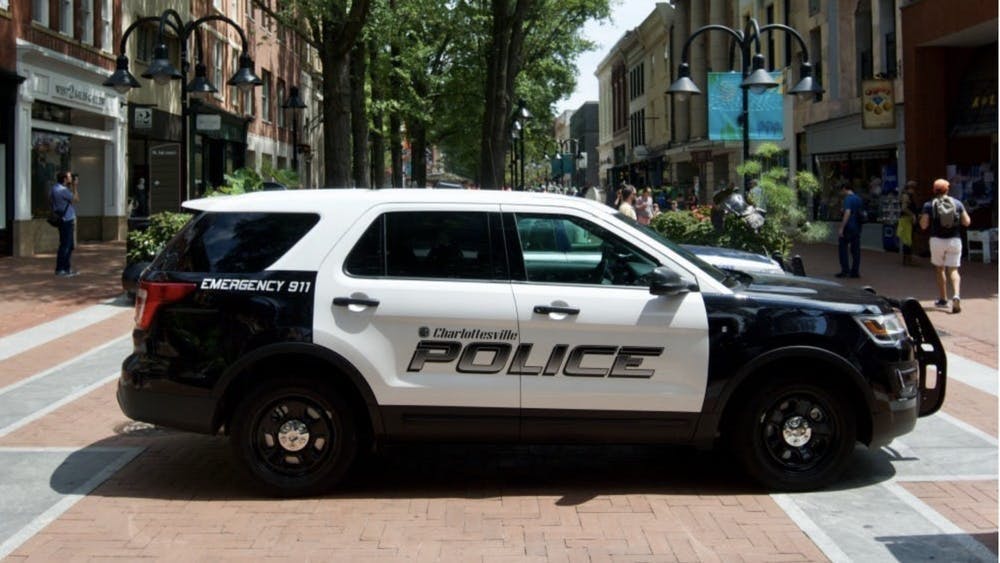In early February, Charlottesville City Council discussed a report of data from 2014 through 2016 that highlights the disparities that exist between black and white residents in the Charlottesville and Albemarle County criminal justice systems. These disparities have been blatantly apparent for generations and have yet to be fully addressed.
This report, which was published Jan. 20, illustrates that Charlottesville courts are following a national trend of racial disproportionality in our country’s justice systems. Despite comprising only a small fraction of the local population, black men account for a clear majority of inmates at the Albemarle-Charlottesville Regional Jail. Black men — who make up about 8.5 percent of the Charlottesville population and 4.3 percent of the Albemarle County population — represent 51.47 percent of bookings in Charlottesville and 37.56 percent of bookings in Albemarle County.
The data outlined in the report underscores the incredible amount of work that Charlottesville needs to undertake to provide adequate reform in its justice system. Without it, the city will continue to allow black residents to face further persecution that leads to a higher poverty rate among black residents.
The report also highlights the degree to which implicit bias influences the local criminal justice system. Specifically, it found that “For crimes of similar seriousness, African American males were 31 percent more likely to be found guilty than were white American individuals.” The criminal justice system is failing minority communities — and, in particular, failing back men and families — in the Charlottesville area. The City cannot idly sit back and watch as the black community in Charlottesville faces this level of oppression. While some attempts at reform have been put in place in recent years, there is clearly so much more that needs to be done in order to truly dismantle the structural issues causing this persecution of black citizens.
This over-policing of the black community is a key element that has kept a disproportionate amount of the country’s black population in poverty. The report notes that “the preponderance of evidence nationally, show clearly that criminality does not operate in a vacuum; it is impacted and increased when poverty and homelessness are high, and education and employment are low.” However, we must ask ourselves why we see such disparities in crime between low-income and richer areas. The structural aspects of our society often expose those in low-income areas to crime throughout their lives, and a lack of resources in low-income areas often perpetuates a cycle of crime. Moreover, the injustice seen in local justice systems — such that was detailed in this report — only further the cycle of crime and poverty.
This report is not necessarily surprising — the subjugation of the black population by local law enforcement is a story seen all too often throughout the country. Charlottesville attorney Jeff Fogel even said, “The fact that black residents have disproportionate contact with the police and courts is not news — black members of this community have always known this; attorneys have always known this.”
The report does, however, provide local authorities with clear and obvious facts about the issues plaguing the local justice system. MGT Consulting Group reported these findings and outlined policies on Monday to City Council.
Now it is the job of City Council to seriously consider the issues that arise from this report and address potential solutions to the problem. For instance, City Council should continue prioritizing the solidification of a Civilian Review Board, among other possible solutions. This Review Board is comprised of many people, for example Charlottesville residents from historically disadvantaged communities, as well as a non-voting member with direct experience with the Charlottesville Police Department. The Charlottesville Police Department must work further to establish better trust with the communities they are supposed to serve. This board would work to increase transparency and confidence between the Charlottesville community and its police department.
It is undeniable that local law enforcement and the criminal justice system itself have failed the black population of Charlottesville and Albemarle County for far too long. It is time for local authorities to finally acknowledge this — the report makes it clear that the issue can no longer be ignored.
The Cavalier Daily Editorial Board is composed of the Executive Editor, the Editor-in-Chief, the two Opinion Editors and their Senior Associate. The board can be reached at eb@cavalierdaily.com.







